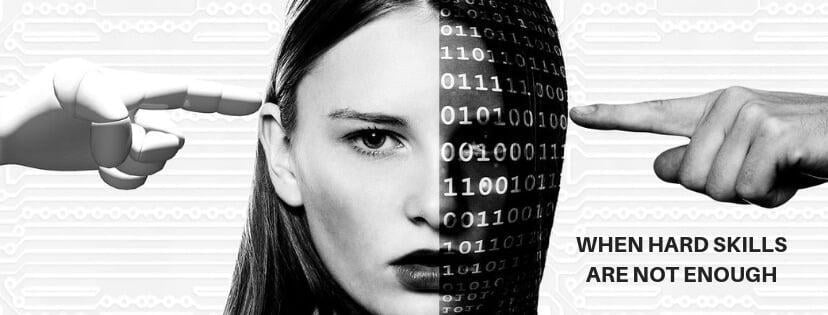
As we enter the Fourth Industrial Revolution, Artificial Intelligence and disruptive technologies will change the face of our planet forever! There are no guarantees as to how things will look. However, one thing will be certain: the human element. The asset that genuinely appreciates within an organization is its people. Systems become dated, buildings deteriorate, but people can grow, develop, and become more effective when they understand their potential value.
Deloitte, through their research, published an article called “Soft Skills for Business Success” affirming that in the future economy, one of the highest demands will be for people with soft skills. Thus, a high IQ and excellent education will only get you so far. Those who want to ‘future-proof’ themselves will have to develop their soft skills.
Hard Skills vs. Soft Skills
What is the difference between hard skills and soft skills? Hard skills are technical skills that can be learned academically. Hard skills are easily measured. Soft skills, on the other hand, are skills that are under the surface and are often difficult to assess. The Oxford Online Dictionary defines soft skills as “personal attributes that enable someone to interact effectively and harmoniously with other people.” Most people can learn the hard technical skills of a job, but what is lacking is the soft skills needed to keep the job! Soft skills will be the defining factor between those who excel and those who fail. Business owners are now seeing the need to develop their people holistically. Employees can be trained in technical skills, but it won’t mean anything to the company if they are always sick, can’t communicate, can’t work in a team, don’t show initiative, and struggle to manage their emotions.
Soft Skills Don’t Expire
What makes soft skills so important is that they are skills without a ‘sell-by’ date. They will never become obsolete through disruptive technologies. They are also transferable skills that are valuable no matter what industry one finds oneself in. Investing in soft skills therefore not only makes you more employable but also more versatile and agile. As Daniel Goleman, the EQ expert, said: “For star performance in all jobs, in every field, emotional competence is twice as important as purely cognitive abilities. For success at the highest levels, in leadership positions, emotional competence accounts for virtually the entire advantage.”
Training and Development of Soft Skills
So where do we start? Parents, educators, coaches, and business owners need to become very intentional about how we develop and train the people we are responsible for. We need to teach them positive self-esteem. We need to teach them healthy eating and sleeping habits. We need to teach them to be aware of their emotions and how they should respond, not react, in difficult situations. We need to show them how to communicate, work in teams, and deal with conflict. We need to teach them how to lead from a place of integrity, humility, and teachability. It is time we revisit the essential need for soft skills in our own lives and in those we lead.







